第68章
A valuable hint is furnished to us from a quarter fruitful ofsuch indications. Although in India the possessions of a parentare divisible at his death, and may be divisible during his life,among all his male children in equal shares, and though thisprinciple of the equal distribution of property extends to everypart of the Hindoo institutions, yet wherever public office orpolitical power devolves at the decease of the last Incumbent,the succession is nearly universally according to the rules ofPrimogeniture. Sovereignties descend therefore to the eldest son,and where the affairs of the Village Community, the corporateunit of Hindoo society, are confided to a single manager, it isgenerally the eldest son who takes up the administration at hisparent's death. All offices, indeed, in India, tend to becomehereditary, and, when their nature permits it, to vest in theeldest member of the oldest stock. Comparing these Indiansuccessions with some of the ruder social organisations whichhave survived in Europe almost to our own day, the conclusionsuggests itself that, when Patriarchal power is not only domesticbut political, it is not distributed among all the issue at theparent's death, but is the birthright of the eldest son. Thechieftainship of a Highland clan, for example, followed the orderof Primogeniture. There seems, in truth, to be a form offamily-dependency still more archaic than any of those which weknow from the primitive records of organised civil societies. TheAgnatic Union of the kindred in ancient Roman law, and amultitude of similar indications, point to a period at which allthe ramifying branches of the family tree held together in oneorganic whole; and it is no presumptuous conjecture, that, whenthe corporation thus formed by the kindred was in itself anindependent society it was governed by the eldest male of theoldest line. It is true that we have no actual knowledge of anysuch society. Even in the most elementary communities,family-organisations, as we know them, are at most imperia inimperio. But the position of some of them, of the Celtic clans inparticular, was sufficiently near independence within historicaltimes to force on us the conviction that they were once separateimperia, and that Primogeniture regulated the succession to thechieftainship. It is, however, necessary to be on our guardagainst modern associations with the term of law. We are speakingof a family-connection still closer and more stringent than anywith which we are made acquainted by Hindoo society or ancientRoman law. If the Roman Paterfamilias was visibly steward of thefamily possessions, if the Hindoo father is only joint-sharerwith his sons, still more emphatically must the true patriarchalchieftain be merely the administrator of a common fund.
The examples of succession by Primogeniture which were foundamong the Benefices may, therefore, have been imitated from asystem of family-government known to the invading races, thoughnot in general use. Some ruder tribes may have still practisedit, or, what is still more probable, society may have been soslightly removed from its more archaic condition that the mindsof some men spontaneously recurred to it, when they were calledupon to settle the rules of inheritance for a new form ofproperty, But there is still the question, Why did Primogenituregradually supersede every other principle of succession? Theanswer, I think, is, that European society decidedly retrogradedduring the dissolution of the Carlovingian empire. It sank apoint or two back even from the miserably low degree which it hadmarked during the early barbarian monarchies. The greatcharacteristic of the period was the feebleness, or rather theabeyance, of kingly and therefore of civil authority,. and henceit seems as if, civil society no longer cohering, men universallyflung themselves back on a social organisation older than thebeginnings of civil communities. The lord with his vassals,during the ninth and tenth centuries, may be considered as apatriarchal household, recruited, not as in the primitive timesby Adoption, but by Infeudation; and to such a confederacy,succession by Primogeniture was a source of strength anddurability. So long as the land was kept together on which theentire organisation rested, it was powerful for defence andattack; to divide the land was to divide the little society, andvoluntarily to invite aggression in an era of universal violence.
We may be perfectly certain that into this preference forPrimogeniture there entered no idea of disinheriting the bulk ofthe children in favour of one. Everybody would have suffered bythe division of the fief. Everybody was a gainer by itsconsolidation. The Family grew stronger by the concentration ofpower in the same hands; nor is it likely that the lord who wasinvested with the inheritance had any advantage over his brethrenand kinsfolk in occupations, interests, or indulgences. It wouldbe a singular anachronism to estimate the privileges succeeded toby the heir of a fief, by the situation in which the eldest sonis placed under an English strict settlement.